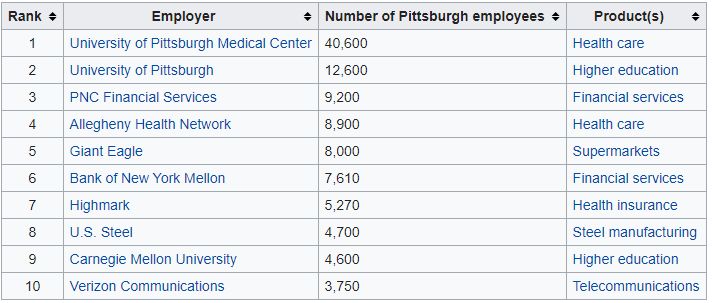Pittsburgh, PA

Contact: Tom Piccone (tjpiccone@gmail.com); Andy Wang (andywang.sg@gmail.com)
The Church of God in Pittsburgh
The Church of God in Pittsburgh was originally established as the Church in Pittsburgh in 1983, primarily through a migration of saints mainly from Ohio. Some years after a turmoil, the Church of God in Pittsburgh was incorporated in 2017. The church does not presently have a meeting hall but meets on university campuses and in various saints’ homes. Approximately 40 currently gather on Lord’s Day mornings, including four children. The racial composition of the church is 59% Chinese and 16% Caucasian, with the remaining 25% a mix of Korean, Vietnamese, Black, and Indian.
The current church life in Pittsburgh focuses primarily on campus work at the University of Pittsburgh (Pitt) and Carnegie Mellon University (CMU). However, the need to gain more families is of equal priority(and not necessarily separate). Each year, the Lord adds remaining fruit to His Body through the saints’ labor on the campuses to gain college and graduate students and sometimes university staff. In the past 12 years of campus work, dozens have been gained, but most have moved away. Only a handful of them have not been Asian.
While the saints in Pittsburgh welcome all who would like to move here, we particularly see a need for young American families to migrate to the Pittsburgh area to share the burden of shepherding and gaining some from the population of American students and families for the strengthening of His testimony in this locality and region.
We have reached significant milestones in the past years, including establishing a new church entity, beginning a children’s service schedule for bringing up the next generation in this city and region, and supporting the two Christians on Campus clubs at Pitt and CMU. These clubs have about 10 student members each.
Location, Climate, and Health
Pittsburgh is located in Allegheny County near the southwest corner of Pennsylvania, at the confluence of the Allegheny, Monongahela, and Ohio rivers. Driving times to several localities in the region are Morgantown, WV – 1:20; Wickliffe, OH – 2:00; Columbus, OH – 3:00; Buffalo, NY – 3:20; Washington, DC– 4:00; Ann Arbor, MI – 4:20, Philadelphia, PA – 4:40.
The area has four distinct seasons: winters are cold, cloudy, and moderately snowy; springs and falls are generally mild with moderate levels of sunshine, and summers are warm and humid. The average annual precipitation is 38.2 inches, and snowfall averages 41.4 inches per season. Over the year, the temperature typically varies from 23°F to 83°F and is rarely below 7°F or above 91°F.
The two largest area health care providers are the world-renowned University of Pittsburgh Medical Center (UPMC) (established in 1893) and Allegheny Health Network (established in 1882). Both flagship hospitals rank annually as among the best in the United States, with UPMC appearing on U.S.News and World Report’s “Honor Roll” every year since 2000.
Demographics
Pittsburgh proper has just over 300,000 people. The metropolitan population of 2,300,000 is the largest in the Ohio Valley and Appalachia. Pittsburgh is the second-largest city in Pennsylvania. The racial makeup of Pittsburgh is 65% White, 26% Black, 4.4% Asian, 2.3% Hispanic, and 2.3% mixed or other.
Housing
Pittsburgh is home to 90 diverse and eclectic neighborhoods. On Zillow, the median home value in Pittsburgh is $149,500, but prices vary widely by neighborhood and house characteristics. The median price of homes currently listed in Pittsburgh is $219,000, while the median price of sold homes is $154,400. The median rent price in Pittsburgh is $1,400.
We recommend that the migrating saints look for housing near the campuses of CMU and Pitt, which are adjacent to each other in a neighborhood named Oakland. Oakland is about 3.5 miles away from downtown Pittsburgh. Many student saints live in Oakland and surrounding neighborhoods within 10 minutes of driving, such as Shadyside and Squirrel Hill. Most of the working saints also reside in or near these areas. The crime rate in these areas is very low. Many students walk or take the bus to and from school, even late at night.
The areas recommended above are older neighborhoods. The Zillow median home values in these areas are $182,900 for Oakland, $376,900 for Shadyside, $604,400 for North Squirrel Hill, and $344,900 for South Squirrel Hill. A three-bedroom condominium near the two universities costs between $200,000 and $300,000.
In 2015, Pittsburgh was listed among the “Eleven most livable cities in the world,” It has frequently been ranked as the most or second-most livable city in the United States.
Economy/Employment
The economy of Pittsburgh is diversified, focused on services, medicine, higher education, tourism, banking, corporate headquarters, and high technology. Once the center of the American steel industry and still known as “The Steel City,” today, the city of Pittsburgh has no steel mills within its limits. However, Pittsburgh-based companies such as U.S. Steel, Ampco Pittsburgh, and Allegheny Technologies own several working mills in the Pittsburgh metropolitan area.
Major employers and industries
- Corporate: seven Fortune 500 companies, including Kraft Heinz, Alcoa, PPG, and U.S. Steel, are based in Pittsburgh.
- Academic: the greater Pittsburgh area has 76 colleges and universities, of which the best known are the University of Pittsburgh and Carnegie Mellon University.
- Medical: the University of Pittsburgh Medical Center (UPMC) is the largest employer (40,600) in the Pittsburgh area. Pitt also has a medical school ranked in the top 20 in the nation.
- Technology: Google has 1,500 employees in Pittsburgh. Uber’s driverless car division (1,000 employees) is based in Pittsburgh. Google, Amazon, Apple, Bosch, Facebook, Uber, Nokia, Autodesk, Microsoft, and IBM are among 1,600 technology firms with offices in the area.
- Banking: the nation’s fifth-largest bank (PNC) is based in Pittsburgh.
- Law: six of the top 300 U.S. law firms have their global headquarters in the area.
Largest employers

Source: Wikipedia, https://en.wikipedia.org/wiki/Economy_of_Pittsburgh
Present occupations and employers of the saints
- Allegheny General Hospital
- Carnegie Mellon University
- CVS Pharmacy
- Emerson Electric
- Massaro Construction Group
- Rapid Flow Technologies
- University of Pittsburgh
- University of Pittsburgh Medical Center
Transportation
Pittsburgh International Airport (PIT) is the primary airport providing commercial passenger service to the metropolitan area. PIT is the second-busiest passenger airport in Pennsylvania and 47th-busiest in the United States. The following airlines fly out of PIT: Air Canada Express, Alaska Airlines, Allegiant Air, American Airlines, American Eagle, Boutique Air, British Airways, Condor, Delta Air Lines, Delta Connection, Frontier Airlines, JetBlue, Southern Airways Express, Southwest Airlines, Spirit Airlines, United Airlines, and United Express.
Port Authority of Allegheny County is the region’s mass transit system. Port Authority runs a network of intracity and intercity bus routes, a light rail system that runs mostly above-ground in the suburbs and underground as a subway in the city, and one of the nation’s largest busway systems.
Both Uber and Lyft operate in Pittsburgh. There is also a public bike-sharing system.
Transportation by automobile is prevalent. Locals refer to the highways from downtown Pittsburgh as the “parkways.” Interstate 376 is both the “Parkway East” connecting to I-76 (Pennsylvania Turnpike) and the “Parkway West” connecting to I-79, the Pittsburgh International Airport, the Ohio end of I-76, and I-80. The “Parkway North” is I-279 connecting to I-79. There is also a non-expressway County Belt System for automobile travel in Pittsburgh and Allegheny County.
Campuses
The largest university in Pittsburgh is the University of Pittsburgh (Pitt), which has 28,600 students and four regional campuses in western Pennsylvania. Pitt has about 6,000 international students, scholars, staff, and faculty.
Carnegie Mellon University (CMU) is a private research university in Pittsburgh with nearly 14,000 students. CMU has over a dozen degree-granting locations in six continents. CMU is ranked number one nationally in Computer Science, Artificial Intelligence, and Robotics.
The Community College of Allegheny County (CCAC) has 18,900 students spread across four campuses and four centers throughout Allegheny and Washington counties.
Other colleges in Pittsburgh include Duquesne University, Point Park University, Chatham University, and Carlow University.
Schools
Public schools: The school district operates 54 schools with 3,900 full-time employees (1,985 teachers) and serves 23,331 students with a 2018 General Fund Budget of $625.1 million, or nearly $26,800/student. There are 22 elementary schools (K-5), 11 schools for grades K-8, 10 schools classified as middle schools (6-8) or Accelerated Learning Academies, and three secondary schools (6-12). Six high schools serve particular groups of Pittsburgh neighborhoods.
Local public schools include many charter and magnet schools, including City Charter High School (computer- and technology-focused), Pittsburgh Montessori School, Pittsburgh Gifted Center, Barack Obama Academy of International Studies 6-12, Pittsburgh Creative and Performing Arts 6-12, Pittsburgh Science and Technology Academy, the Western Pennsylvania School for Blind Children, and the Western Pennsylvania School for the Deaf.
Private schools: Private schools in Pittsburgh include Bishop Canevin High School, Central Catholic HighSchool, Oakland Catholic High School, Winchester Thurston School, St. Edmund’s Academy, Hillel Academy of Pittsburgh, Yeshiva Schools, and The Ellis School. Shady Side Academy maintains a PK-5 primary school campus in the Point Breeze neighborhood and its 6-12 middle and upper school campuses in nearby suburban Fox Chapel.
The locations for these schools can be viewed on a map here: https://bit.ly/2LIy96e.
Homeschooling: Parents in Pennsylvania can teach their children at home. Pennsylvania’s law on home education is called Act 169. Information about this law is online at: https://bit.ly/2t5QCmN.
Interests
Listed below are some interests served in Pittsburgh and the surrounding area:
Science and nature: Carnegie Museum of Natural History, Carnegie Science Center, Pittsburgh Zoo and PPG Aquarium, Phipps Conservatory and Botanical Gardens, National Aviary
Arts and culture: Carnegie Museum of Art, Frick Art and Historical Center, Pittsburgh Center for the Arts, Andy Warhol Museum, Heinz Hall for the Performing Arts (home of Pittsburgh Symphony Orchestra), the Benedum Center for the Performing Arts (home of Pittsburgh Opera), Byham Theater, Pittsburgh Ballet Theatre, Senator John Heinz History Center and Western Pennsylvania Sports Museum, Fort Pitt Museum, Soldiers and Sailors Memorial Hall and Museum, Children’s Museum of Pittsburgh, Cathedral of Learning’s Nationality Rooms
Professional sports: Pittsburgh Pirates (MLB), Pittsburgh Steelers (NFL), Pittsburgh Penguins(NHL), Pittsburgh Riverhounds (USL), Steel City Yellow Jackets (ABA)
Annual major sporting events: Pittsburgh hosts several annual events, including the Three Rivers Regatta, the Pittsburgh Vintage Grand Prix, the Dirty Dozen Cycle Race, the Pittsburgh Marathon, the Great Race 10K, and the Head of the Ohio Regatta
Western Pennsylvania attractions and vacation destinations: Kennywood (amusement park), Sandcastle Water Park, Gateway Clipper Fleet (boat tours), Mount Washington (scenery), Frank Lloyd Wright’s Fallingwater (Mill Run), Ohiopyle State Park (Laurel Highlands), Presque Isle State Park (Erie), Allegheny National Forest, Three Rivers Heritage Trail, Great Allegheny Passage, Laurel Highlands Trail, Nemacolin Woodlands Resort, Seven Springs Mountain Resort (skiing)